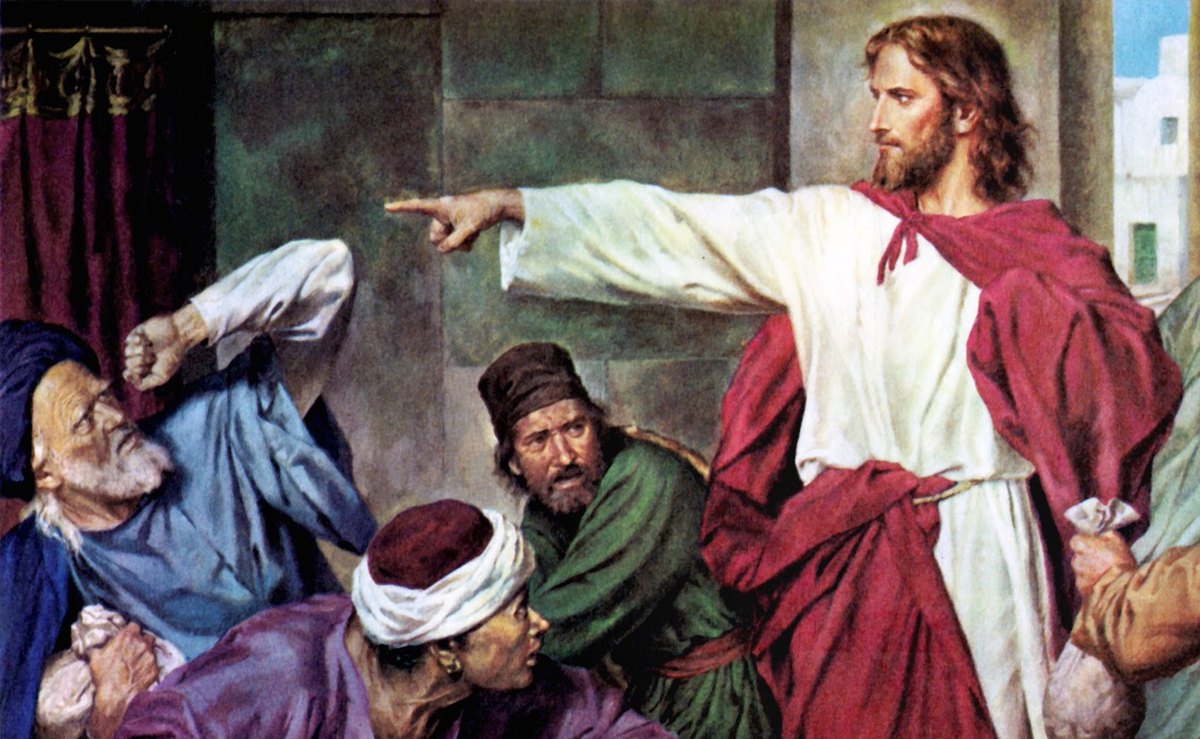CHURCH TALK: A ‘pricked’ conscience
Friday 15 October 2021 | Written by Supplied | Published in Church Talk, Features

Jesus quickly and firmly rebukes the scholar of the law, pointing out that the scholar uses the law to impose heavy burdens on people. ESCAPE TO REALITY/21101409
In recent weeks in my church, the daily scripture has been concerned with the conversations between Jesus and the Pharisees. This prompted me in my last article to reflect on the accusation that Jesus called the Pharisees “hypocrites”, writes Bishop Paul Donoghue of the Catholic Church.
This series on “Woe to you, Pharisees” is further developed in the scripture passage below.
Then one of the scholars of the law said to him in reply, “Teacher, by saying this you are insulting us too.” And he said, “Woe also to you scholars of the law! You impose on people burdens hard to carry, but you yourselves do not lift one finger to ease them.” Luke 11:45–46
A scholar is introduced into the passage above. He is sometimes referred to in some texts as a lawyer. That meant he was a scholar of church law – the one who had the right to interpret or make binding decisions about a given biblical law.
This scholar was in a position to listen to Jesus while he dined with the Pharisees and during the conversation Jesus admonished them (Luke 11: 37 – 46). But as the scholar listened, his own conscience was pricked, and he challenged Jesus. “Master when you speak like this you insult us too.” (Luke 11: 45). What does Jesus do? He quickly and firmly rebukes the scholar of the law, pointing out that the scholar uses the law to impose heavy burdens on people. Jesus did not back down in this rebuke of love. Instead, He directed it to the very place that His rebuke was bearing fruit: in the conscience of this scholar of the law.
For a moment let us focus on the word “conscience”. For us human beings, conscience is our most secret core. It is that part of us that we consider our inner sanctuary. When we use our conscience, we are alone with God whose voice echoes in our depths. Put simply, it is how we decide what is right and wrong, good or evil. Our parents first formed our conscience; then our teachers developed it until eventually we were able to take responsibility for it ourselves.
What can the conscience of the scholar in this scripture text teach us about our own use of conscience? Firstly, we learn from him the importance of paying attention to our conscience when it is “pricked”. Secondly, it teaches us that when this happens, it is very easy to become defensive.
Ask yourself. What pricks my conscience?
Think back over the past month and reflect upon anything that you became defensive about. Did something someone said bother you? If so, pay attention to this. I frequently hear people say something like this particularly on radio talkback show – “I am a straight person. If it needs to be said, I will say it.” I have no problem with this attitude. After all Jesus took the “blow torch’ to the Pharisees. He didn’t tone down his words. He was a sharp shooter. My question would be: If I use this approach, do I also test this against my conscience? E.g. Did, I speak the truth? Did I ruin someone’s good name by what I said? Did I consider how my message would have affected those listening? I am stressing the importance of listening to that inner voice rather than ignoring it.
We can become defensive. We can rationalise the truth. Think of the good the scholar in our gospel passage could have done if he had listened to his disturbed conscience and if he had not seen Jesus’ words as an insult but rather as a better way of acting. He would have lifted the burdens from the people who listened to him, if he had humbly looked at his own life and realised that he was also guilty of the very things for which Jesus was condemning the Pharisees. If he had done that, he would have been put in a position to sincerely examine his actions and begin a process of change. But this is hard to do.
I encourage you to reflect, today, upon anything that has recently offended you. Be honest. View the loving rebuke of another as something you must work diligently to overcome. Pride, for example. And when you feel defensive, it is an indication that there is something in your life that you need to change.
A disturbed or uneasy conscience is a gift from God. Rejoice when that happens, rather than being offended, and you will discover one of the best ways by which you can grow in holiness of life.
You become free of the very sin the Lord Jesus is presenting to you.












































